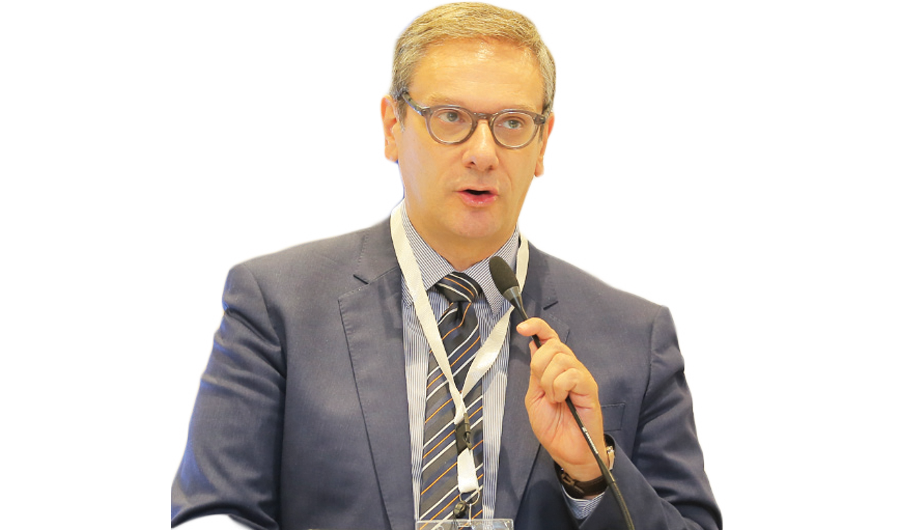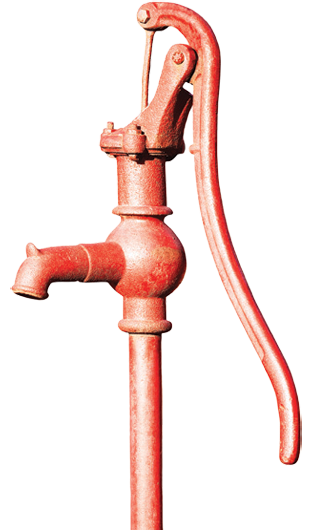DUBAI: As governments and nongovernmental organizations draw up plans to address the world’s major water challenges, experts say that in addition to sound and integrated resources management, what may hold the key to a positive outcome in each case is more attention and coordinated action.
For the countries of the Mediterranean and the Middle East and North Africa (MENA) regions, whose share of global freshwater resources is a meagre 3 percent for a population of more than 460 million, it would certainly not hurt if “more attention, coordinated action and better management” became something of an inter-governmental mantra.
Among the organizations striving to create and maintain momentum for coordinated action is the Global Water Partnership (GWP), a Stockholm-based “multi-stakeholder action network,” with its ability to mobilize over 3,000 partner organizations and learn from new experiences.
In keeping with its mission of “advancing governance and management of water resources for sustainable and equitable development,” the GWP recently unveiled its strategy for 2020-25, titled “Mobilizing for a water secure world.”
Central to the strategy are the UN Sustainable Development Goals (SDGs), climate-resilient development and transboundary water cooperation, with particular emphasis on engagement with the private sector, youth participation in decision-making and gender-inclusivity.
“Recent forecasts point to water availability becoming more strenuous due to precipitation decrease, temperature rise and population growth,” said Vangelis Constantianos, executive secretary of Global Water Partnership Mediterranean (GWP-Med).
“Due to climate change alone, (water) availability may decrease by two to 15 percent for a +2 degrees Celsius warming (scenario).
“This is among the largest (predicted) decreases in the world. Furthermore, extreme phenomena, like droughts and floods, would increase in the region.”

Vangelis Constantianos, executive secretary, GWP-Med. (Supplied)
Irrigation, for instance, represents 50 to 90 percent of the total water used. It is estimated that, by the end of the century, a +2 degrees Celsius warming scenario will translate to a 4 percent increase in irrigation water demand, while a +5 degrees Celsius warming scenario will mean an 18 percent increase.
“If population growth and shift of consumption patterns are also considered, these scenarios may reach a scary +22 percent and +74 percent of water demand for irrigation,” Constantianos said.
“The situation becomes gloomier when seen through the integrated water-energy-food-ecosystems nexus lens, where every shift or pressure affecting each of these sectors has an impact on all the others.”
Through GWP-Med, the GWP is an active contributor of policy and technical solutions to countries that are grappling with water-related challenges. It engages with all actors that have a stake in natural resources management.
The “Mobilizing for a water-secure world” strategy “describes where we focus and how we will deliver our contributions responding to demand, plus builds on our more than 20 years of experience,” Constantianos said.
“Of course, water scarcity is not new in the region. Solutions have been worked out over millennia. However, today’s challenges are bigger on natural conditions and far more complex in socioeconomic terms.”
The GWP’s new strategy reinforces and expands its long-term agenda, which includes supporting countries achieve the SDGs by facilitating the framing of water policies and investment plans, incorporating the different values of water in decision making and helping countries to assess their progress towards set objectives.
The ultimate goal is to make water governance and water financing more effective and comprehensive while addressing the water-energy-food-ecosystem nexus.
“Water is a scarce source in the Middle East,” said Dr Osman Gulseven, associate professor at Skyline University College in Sharjah. “The climate is mostly arid desert. Some countries are on the border of the Mediterranean, but even they do not get much rain.
“In the oil-rich Gulf region, tap water comes from desalinated sea water. However, this is an unsustainable solution because it increases the salinity level of the sea, which in turn negatively affects life underwater.”
According to Gulseven, droughts are becoming frequent in the Levant countries, including Syria, Iraq, Egypt and Jordan, while parts of Saudi Arabia and Kuwait are experiencing unexpected floods.
“The increased frequency of natural disasters shows that there is a need for important climate-resilient development and transboundary water cooperation in the Middle East,” he said.
“Collaboration is important because, in many cases, the countries of the Middle East share scarce water resources.”
For the Gulf, the main freshwater sources are the Tigris and Euphrates Rivers. They have their origins in Turkey, pass through Syria and Iraq and debouch into the Gulf near the Basra shallows.
Another big river of the region, the Nile, has its origins deep in Africa and discharges into the Mediterranean Sea in Egypt.
“A collaborative approach to water management will resolve existing and potential conflicts between these nations in the Middle East,” Gulseven said.
 Water challenges in the MENA region are too big and too critical for half measures, say experts who fear the environmental impact of water inadequacy could contribute to social and political instability.
Water challenges in the MENA region are too big and too critical for half measures, say experts who fear the environmental impact of water inadequacy could contribute to social and political instability.
“More than 60 percent of the MENA population is concentrated in places affected by high or very high surface- and ground-water stress, compared to a global average of about 35 percent,” Constantianos said.
“If left unchecked, economic losses related to water are estimated to increase to six to 14 percent of GDP by 2050, the highest in the world.”
Among the potential consequences is high unemployment, particularly among youth, which can significantly increase the risk of violence.
“Social stresses, including high inequality in both opportunity and income, are also among causes of conflict, often triggering migration,” Constantianos said, pointing out studies that suggest “more than a quarter of MENA youth are willing to migrate.”
On the bright side, the GWP sees the pursuit of water security as an enabler of employment opportunities, which in turn could act as an incentive for people to stay in their home country.
Constantianos expects 50 million jobs to be created in the region over the next decade to absorb the labor supply and to tackle some of the root causes of migration.
“Water can become a valid contributor to meeting this target,” he said, adding: “We look into the years ahead with excitement and optimism.”
Transfer and application of “water technology and innovation,” supported by political will, planning tools and investment, can create opportunities for new skills, new job fields and new markets.”
Possible jobs include technical and managerial positions in industries related to sustainable agriculture, integrated urban water management, sustainable production and consumption and tourism.
“Technologies for efficient water supply, wastewater treatment and reuse, irrigation and desalination are among the fields with potential for giving rise to new markets and new skills,” Constantianos said.
“Importantly, instead of being a destabilizer and conflict creator, water can be a key contributor for collaboration among countries across borders as well as among communities. It’s time to stop blaming water scarcity, it has always been in our region, and it won’t go. Today, we feel the urgency and we have theknowledge to act.”













